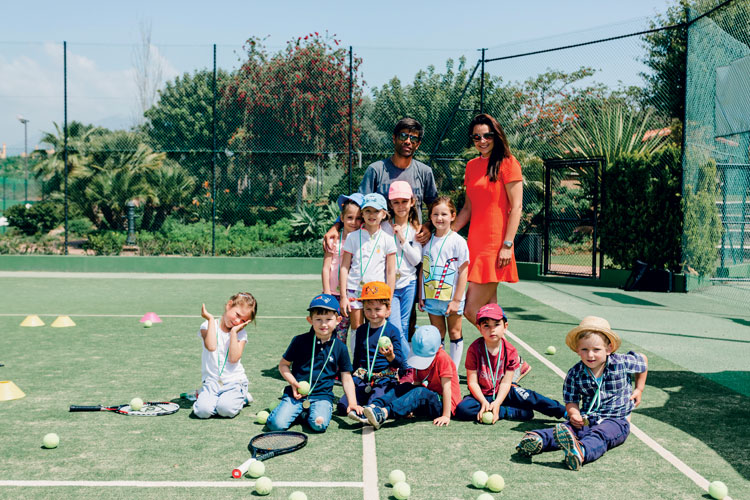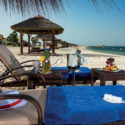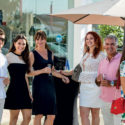By Elena Gatsenko
Should you make your child study during summer holidays or should you give children absolute freedom? Let’s talk about it and start with our childhood stereotypes – spending summer holidays outdoors by the house or summer cottage, or in the country (“retro cliché).
Mowgli-style recreation often happened because our parents had no free time at all. Vacation leave from work in summer were short, and summer camps couldn’t accommodate everyone. So what did we do when our parents were at work? Active empirical world learning – green apricots, mulberry stains on the clothes, ice-cream bought with money received for collected glass bottles, burning tyres and putting amorces in the fire, secrets hidden in the ground, dead birds, ribwort leaf on scratch marks, tree houses and crossbows… Sounds romantic? Yes, it was. And now imagine your home-grown princess alone outdoors from morning till night.
Besides, the world has changed drastically in the last two decades. If you send your child for a walk in the safe yard by your house, you will probably find him/her sitting on a bench with a phone in his/her hands.
Leisure activities and our attitude to quantity and content therefore have changed too. This challenges parents and teachers to find something for a child to do that would sound more appealing than gadgets and virtual games. To make children do something by force won’t work. Take away a tablet or a phone from schoolchildren and they will go through “withdrawals”. And if you impose control and fill in the child’s free time with reading schoolbooks or hire a couple of tutors, be ready for a conflict, resentment and distancing.
A minute of child psychology… The main reason for misbehaviour, whining or abnormal behaviour by the older pre-schoolers is boredom. All children hate boredom, which is a synonym of idleness for them. Any game means a life and reality that children build and believe in. They stand guard, never leaving their “combat station”, fight “the enemies”, make a leaf soup, fly to space or… play angry birds. And that’s where children’s centres and summer camps will come in handy.


For instance, El Campanario children’s centre offers a summer programme where children learn three languages simultaneously while playing. And they still have time for their own games and creative activities. Children learn continuously through games, theatre and quests, and at the same time enjoy recreation and improve their health.
Certainly, a family vacation would bring the dearest and most significant childhood memories. But being honest, you cannot spend 90 days in a row playing, travelling and diversifying activities on an hourly basis. It is better to spend one quality weekend with your children, but plan it well. You can devise various interesting tasks, like a pirate’s treasure buried under a palm-tree, a real boy-scout’s fire with marshmallow and sausages on sticks, or archaeological excavations of ancient dinosaur fossils. And it will be much better than two weeks in a holiday centre with entertainers. But make sure to dedicate the entire weekend to your children (and leave your phone and tablet at home).
Meanwhile, the best addition to family outings is spending time in a summer camp. It is better to start with a day camp for a child to get used to being self-dependent gradually. Summer camp means long walks at the best time of the day, balanced food and, most importantly, entertainment with intellectual, physical and social development. Even if you don’t work and can dedicate all the time to your child, he/she still needs not only communication with peers and socialisation, but also teamwork skills, understanding group environment, realising synergism as teamwork and shared victories. And summer camp is the place to acquire such skills.

This type of recreation is especially important for children who are about to go to school. Summer camp will facilitate smooth transition from play to academic studies and will promote the child’s self-confidence.
El Campanario has the following facilities for children: a real summer theatre, vegetable garden with named patches and edible crop, original programme “draw like a genius”, summer culinary school and unique programmes for each day with enhanced study of languages while playing.
Clinical psychologist Elena Gatsenko is a head of the pacesetting poly-lingual International Kids Club, where her interactive rubric “kindergarten” is dedicated to questions of early development and education of pre-schoolers.
Urb. El Campanario 3, Km. 168, Estepona
Tel. (+34) 648 493 450/ 673 844 832
Kidsclub@elcampanarioresort.com




